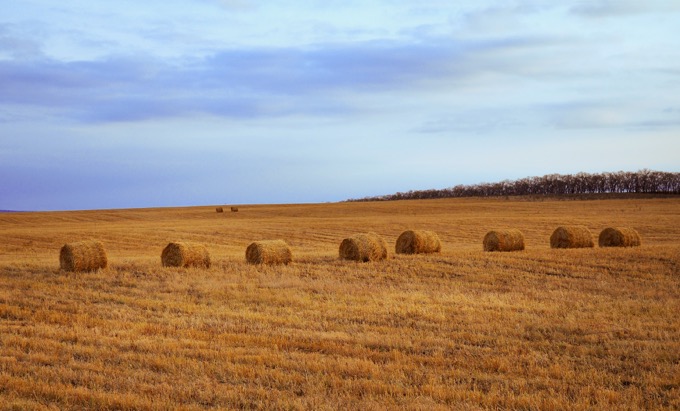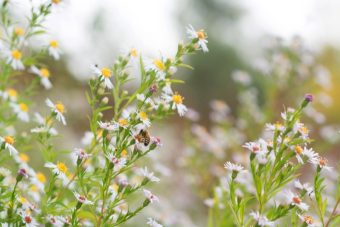
In the interview with Elvir Burazerovic, General Manager of NGO ORCA, we found out what is necessary to do in order to make our agriculture sustainable, as well as what ORCA is undertaking in that sector and what are the consequences on nature if we do not change our way of managing agricultural holdings
The aim of sustainable agriculture is to reduce negative anthropogenic environmental impacts by efficient use, preservation and improvement of the quality of natural resources since agriculture largely depends on the services provided by ecosystems. Preserved natural resources and improved quality of the environment in sustainable production systems are in service not only for the present but also for future generations. Sustainable agricultural production implies that farmers are actively involved in the decision-making process and have concrete benefits from economic development, good working conditions and good prices for their agricultural products.
Traditional agricultural production is a kind of sustainable agriculture and it was widely represented not only in Serbia but also in the greater part of the Western Balkans for a long time. Then, the use of mechanization, fertilizers, pesticides, antibiotics was introduced, so that more food could be produced in less time. The quality of food produced in this way is extremely questioned, and the process of intensive agricultural production itself pollutes land, water, and air.

– Traditional agricultural production has held out in some parts of Serbia, especially when it comes to livestock breeding. On the other hand, many farmers slowly turn to organic or other forms of sustainable production, as the market for their products is gradually being created. The market is definitely created by consumers, and duty of the civil sector is to present the real situation to consumers, that is to all the citizens, and to influence decision-makers to provide a healthy environment in which healthy food can be produced. It is exactly what ORCA is doing with partner organizations through its projects. We do the research, detection of problems, propose solutions which we present to decision-makers and we look for better solutions for people, animals, and environment. The goal is to transfer information to citizens, and they are the ones who create the market, thus we together create the area for development of sustainable production – says Elvir.
NUMBERS AND FACTS ABOUT NATURE
About 1,300 liters of water is needed for the production of one kilogram of wheat, thus about 40 liters of water is required for the production of one slice of bread of 30 grams (for raw materials and processing)
If a slice of cheese of 10 grams is put on that slice of bread, then for the production of both requires around 90 liters of water. (World Water Conference, 2008)
The number of birds that most commonly inhabit agricultural habitats has dropped by almost 50 percent over the past 30 years (Pan-European Common Bird Monitoring Scheme, 2013)
Planet Earth will lose up to 50 percent of wildlife species by the middle of this century (Biological Extinction Conference, 2017)
18 percent of greenhouse gases emissions are caused by intensive livestock breeding – which is more than traffic emits (FAO Food and Agriculture Organization. 2006)
Nature in the service of agriculture, namely the concept of “high-value agricultural production” is the branch of sustainable agriculture in which special attention is paid to the protection of nature and biodiversity. Agricultural production of high natural value is designed so that it protects nature and biodiversity, and at the same time, it allows sustainable food production and development of rural communities.
– It is very important that the farmers in Serbia and other countries of West Balkans understand and start to apply this concept since it implies the preservation of traditional agricultural systems, which mainly include our small and medium-sized farms. The concept functions so that the farmers introduce small changes to their practices, which do not hinder the production but stimulate the environmental protection. By protecting the nature, the farmer provides the use of free services of nature for himself, such as pollination, prevention of erosion, natural regulation of the number of insects that can damage crops and many others. In this way farmers, nature and animals can prosper – Elvir explains.
Agriculture is one of the main greenhouse gas emitters. From the conversation with Mr. Burazerovic, we found out that between 2001 and 2011 global emission of gases from livestock and crop production increased by 14 percent Methane is mostly emitted from livestock production. In Europe, agriculture contributed to the emission of these gases by 10 percent.
In Serbia, 65 percent of the territory is covered by agricultural land and as such it represents one of the main pillars of the country’s economic development. It is expected that good agricultural policy in Serbia will have a significant role in economic development of the country, but also in the reduction of greenhouse gases through improvement of agricultural practices. Since 2000 we have witnessed several extreme periods of droughts and floods in Serbia that have caused significant damages and losses worth more than 5 billion euros, and more than 70 percent of losses were due to drought and high temperatures. Rural communities are particularly affected by such events.
Another project was launched in Serbia in September 2016. The project was aimed at developing a strategy and action plan for climate change at national level, which was also financed by the European Union. It is also expected that this project develops national strategic and legislative framework that would define the priority measures for reducing greenhouse gas emissions as well as to identify responsible institutions for the implementation of these measures.

THE CONNECTION BETWEEN INTENSIVE AGRICULTURE AND DISAPPEARANCE OF SOME SPECIES OF BEES
Scientists from the University of Auckland (New Zealand) conducted a study to determine the connection between intensive agriculture and the disappearance of domestic bee species. Namely, scientists have planted two meadows with field flowers: one in the vicinity of the land on which intensive agriculture is carried out,
and the other in the area surrounding the land where agriculture is of small size. After a while, they noticed that the bee population that visited the first meadow decreased by 90 percent.
This study showed that bees do not need a completely unchanged area to survive and continue to pollinate plants, but they need parts of the natural habitat. These parts of the natural habitat, today almost do not exist in regions where intensive agriculture is carried out.
The goal of the European Union is to make agriculture sustainable and competitive, and the European Union’s Strategy on biodiversity aims to stop the loss of biodiversity by 2020 and also ecosystem services. For this reason, in the European Union, there are various financial incentives for farmers who are market-oriented, that is who satisfy the consumer’s demand and on the other hand, the ones who protect the nature, biodiversity and health and welfare of animals.
– In Serbia we have access to so-called pre-accession funds which largely serve for the development of agriculture and environmental protection – says Elvir adding that the availability and volume of such funds will be expected to increase in the following years as Serbia continues to make better progress in its path to European integration.
At the end of last year, ORCA held a regional conference for the media of Western Balkans and Energy portal took part in it. The conference was organized as the part of four-year project on “Sustainable Agriculture for Sustainable Balkans”, which was funded by the European Union, and the realization was entrusted to ORCA association and its partner organizations from Western Balkan countries with the aim of developing and supporting agro-ecological policies, as well as development of civil sector in the region. The main conclusion from this conference is that the participants realized and pointed out the need for stronger cooperation of civil society organizations, media, and farmers on sustainable agriculture and promotion of principles of agricultural production of high natural value. In addition, the need for creating strategies in order to develop the support to small and medium-sized agricultural producers was highlighted. ORCA will continue to organize these and similar events that will significantly contribute to agro-ecological policies and civil sector in the Western Balkans region.
Prepared by: Nevena Djukic
This article was published in the tenth issue of the Energy Portal Magazine SUSTAINABLE DEVELOPMENT, in March 2018.




